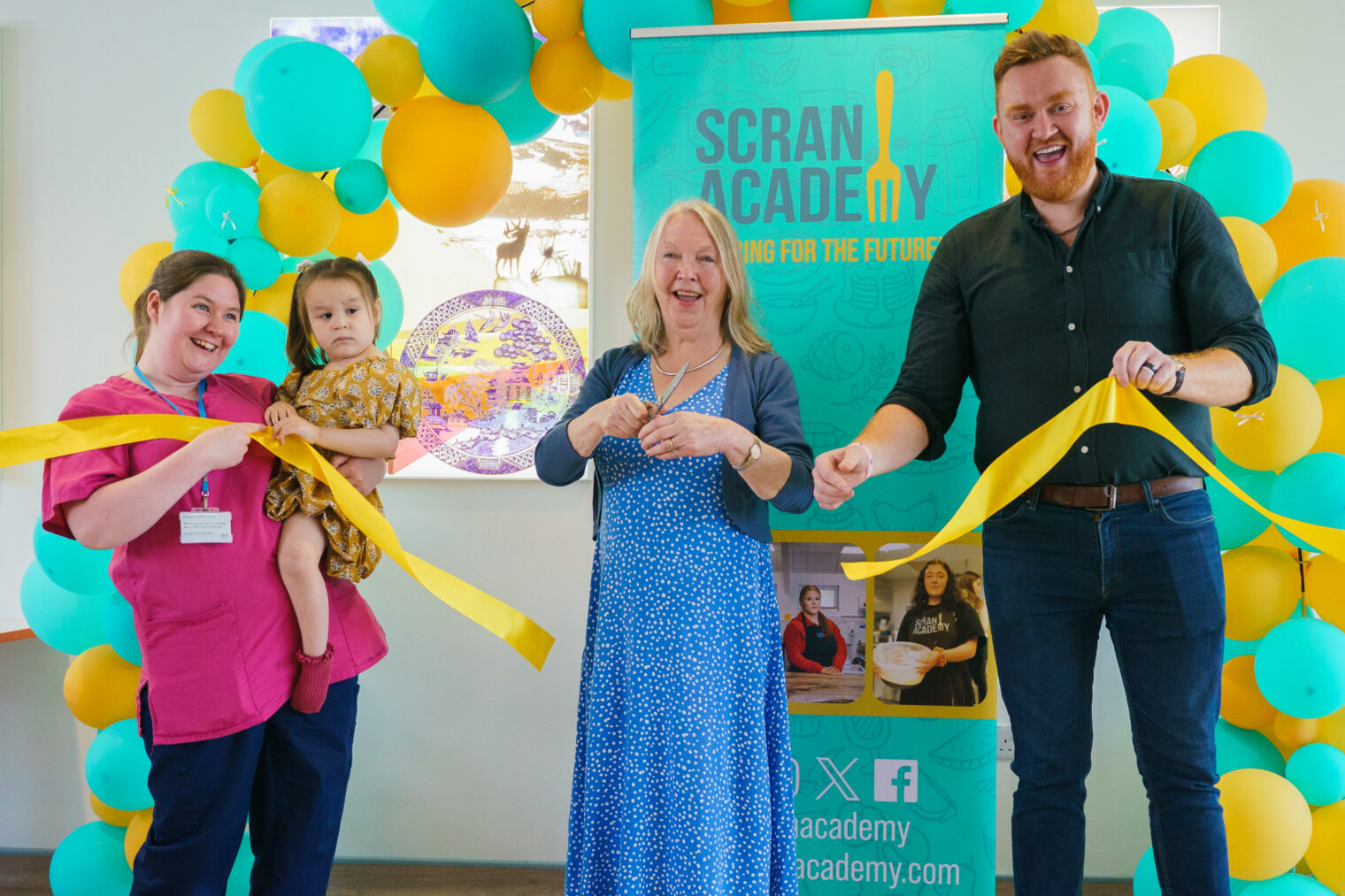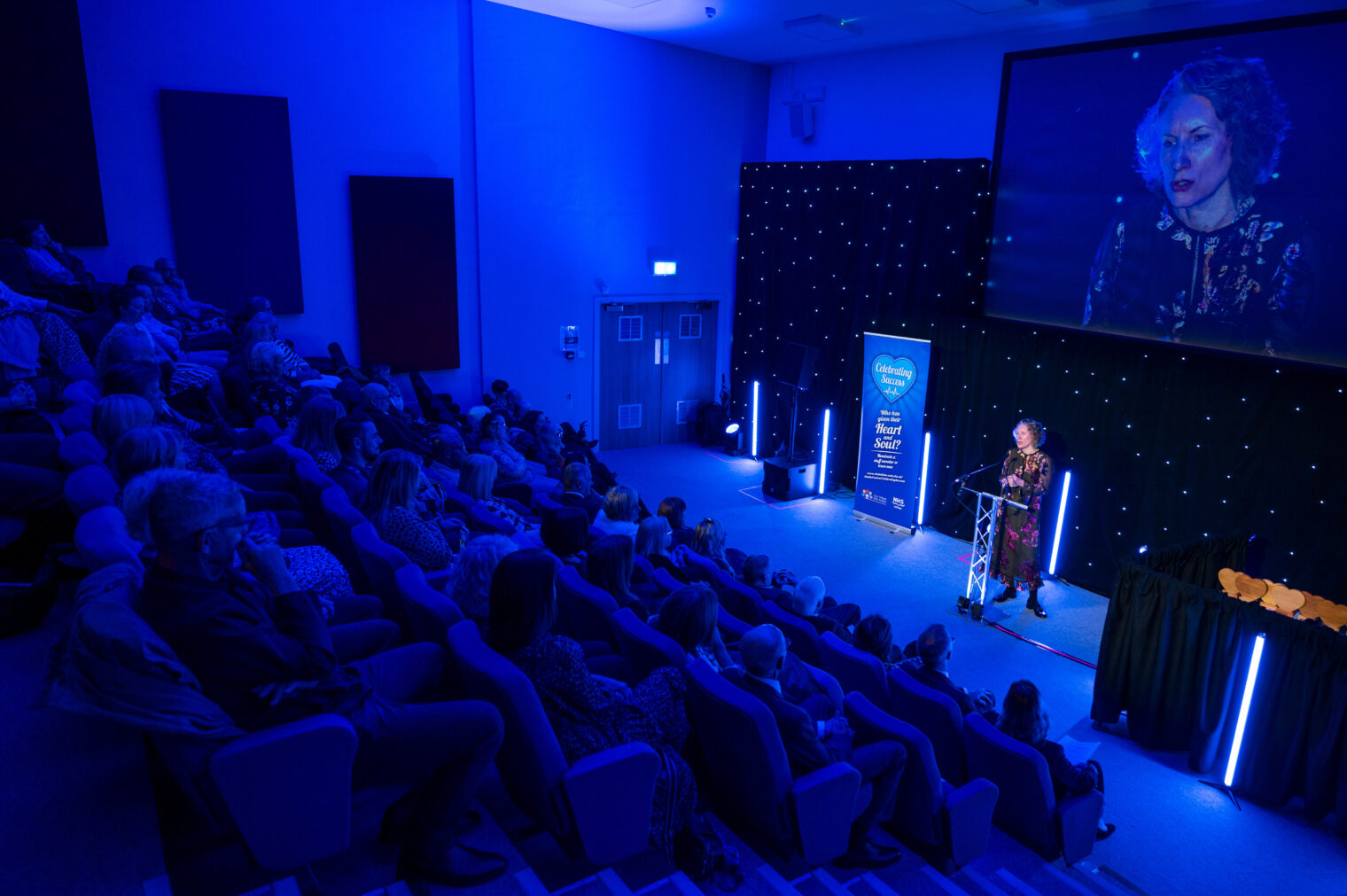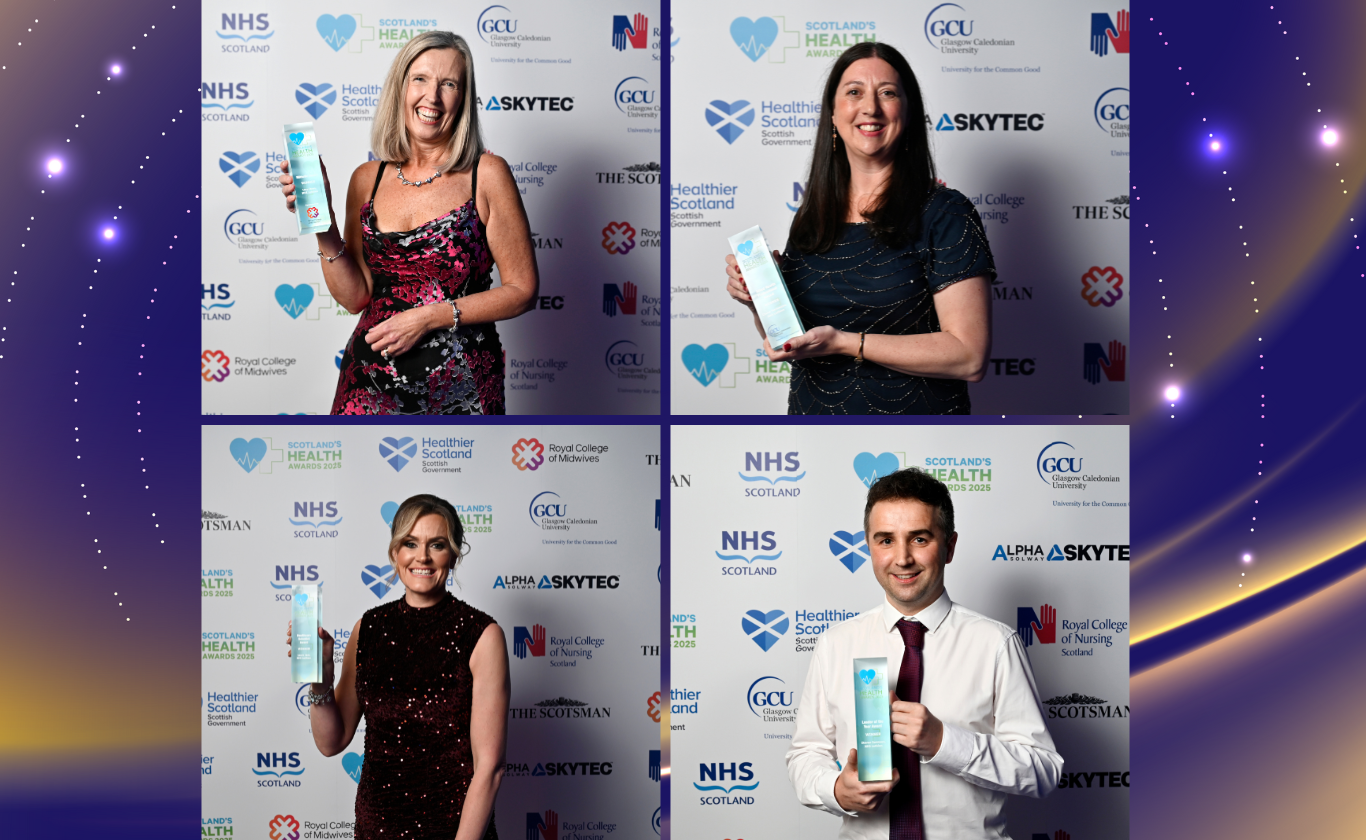Wednesday 8 March marks International Women’s Day. This year’s theme is #EmbraceEquity. The aim of the campaign is to get the world talking about why equal opportunities aren’t enough. People start from different places, so true inclusion and belonging requires equitable action.
We caught up with Laura Hutchison, Equality, Diversity, Inclusion and Human Rights Lead in NHS Lothian, to tell us what encouraged her to get into her line of work and what her role at NHS Lothian entails.
What work have you done in the past around gender equality?
I’m really passionate about equality for women and girls, who wouldn’t be?!
I guess I always have been, but the first time I remember feeling emotional about it was when I was 21 and being interviewed for what I thought was my dream job, an Organiser for a trade union. At my interview my soon to be boss asked me whether I was in a relationship, what would my boyfriend think about me travelling and being away from home a lot and did I want to have children soon. I still find this incredulous and shocking. But I know a lot of women reading this will have experienced the same thing. I felt so lucky to get this job.
Roll on four years later and I was fed up with the ‘everyday sexism’ that I experienced at work (and was expected to tolerate) and when I found out I was paid ten thousand pounds less a year than my male colleague, who was recruited at the same time as me, I decided it was time to move on.
I started work at the Equal Opportunities Commission (EOC) and found a way to channel some of my sense of injustice into doing something positive. Some of the work I am really proud of being part of at the EOC is working with the Head of Legal in Scotland investigating sexual harassment and bullying within the Police, the extent of pregnancy and maternity discrimination across Britain, the undervaluing of women’s work and classroom assistants in Scottish schools and gender segregation in Modern Apprenticeships.
The Equality Act 2006 created the Equality and Human Rights Commission and I transferred into the new equality and human rights regulator for Britain! Although I focused less time working on gender equality issues, I was fortunate enough to work on really important equality and human rights issues. However, I still wanted to help and work on gender equality issues.
In my personal life, I supported a close friend through a long-term abusive relationship and what I learned from this prompted me to apply for and be appointed to the Board of Women’s Aid South Lanarkshire and East Renfrewshire (WASLER). It was an absolute privilege to be part of WASLER for almost 10 years, working with the Chief Executive to build a strong feminist governance structure and promote the work of the organisation with Councils and the Scottish Government. The work done by the staff is truly lifesaving and life changing for women and families who are experiencing domestic abuse.
Women’s organisations such as WASLER are doing significant operational and strategic work to end violence against women and girls and if you’re not already involved in supporting these organisations, I’d encourage you to do what you can.
Why is it important to raise awareness about discrimination?
I think discrimination is about power imbalances between different groups of people in our society. These power imbalances haven’t just appeared, but are decades, perhaps centuries, in the making. Understanding the extent of discrimination in our communities and workplaces means we need to understand this wider context and accept that discrimination is not always a conscious prejudiced act.
Blatant discrimination and harassment isn’t as common in society as it used to be. We have made progress. But we need to make more, and to do this means we need to understand and tackle what’s behind the more common, unintentional acts of discrimination.
The significant negative impact of discrimination on the people who experience it is the same, whether its direct or indirect. Discrimination harms people and in the context of our work, contributes to poor health and wellbeing. It’s an unnecessary harm.
Discrimination also harms the performance of organisations because people are not able to be their best at work and because a lack of diversity of staff across organisations and at all levels (often caused by implicit discrimination) means there isn’t the fullest range of experiences, ideas and constructive challenges. This has been shown to stifle high performance and make it more difficult to identify solutions to sort of complex problems.
What do you do in your role at NHS Lothian day to day?
I started with NHS Lothian in the Head of Equality and Human Rights role in August last year. I joined Rakiya Suleiman, who is the Equality and Diversity Adviser and we make up the small but perfectly formed Equality and Human Rights Team.
Our team provides leadership, advice and support on equality and human rights across all the work NHS Lothian does. Building equality and human rights into everything we do is essential if we are to achieve the vision for the health and care system set out in the Lothian Strategic Development Framework (LSDF).
My role is to inspire and support others working for NHS Lothian to put equality and human rights at the centre of what they do, so that everyone who lives in Lothian and everyone who works for and with us has better experiences. This means working with people to understand how equality and human rights laws, principles and practical tools can help them to do their jobs. Practically, this means providing advice about equality and human rights laws, our legal obligations and best practice.
Much of this is grounded in codes of practice and guidance. But some of it does require working through issues as they arise with a diverse group of people to find solutions. We are responsible for identifying and managing risks of non-compliance with equality and human rights legislation and meeting our statutory equality reporting duties.
We provide accessible equality evidence, information and resources to help people in the organisation understand the extent and impact of discrimination. We also lead and coordinate our own focused programmes of work across the whole organisation, for example the Atlantic Slavery and Royal Infirmary of Edinburgh Project and using the learning about our history to help us to be an anti-racist organisation today, and developing an equality and human rights learning and development programme.
How do the team make a difference?
We make a difference by helping to build and maintain trusting relationships and partnerships with staff and the communities we serve, and the organisations representing them. Rakia and I cannot bring about organisational change on our own, which is why is it crucial that we work with others particularly managers, HR, OD, trade unions and equality organisations. We know that some groups experience much worse outcomes than others, for example disabled people, women, LGBT people and people from our diverse ethnic communities.
We are experiencing significant staffing and financial challenges but if we don’t act now, the disadvantages many people face risk becoming further entrenched for generations to come.
We aim to empower people to help themselves by providing accessible information, resources and ideas to help eliminate discrimination, reduce inequalities and promote and protect our human rights.
In April, we will publish our five-year strategy for equality and human rights. This sets out six priorities that everyone in the organisations must contribute towards achieving. The strategy and priorities set the direction for all of us to make a positive difference to people’s lives. That’s why people work for the NHS, and the equality and human rights team are here to help people continue to make this difference.























